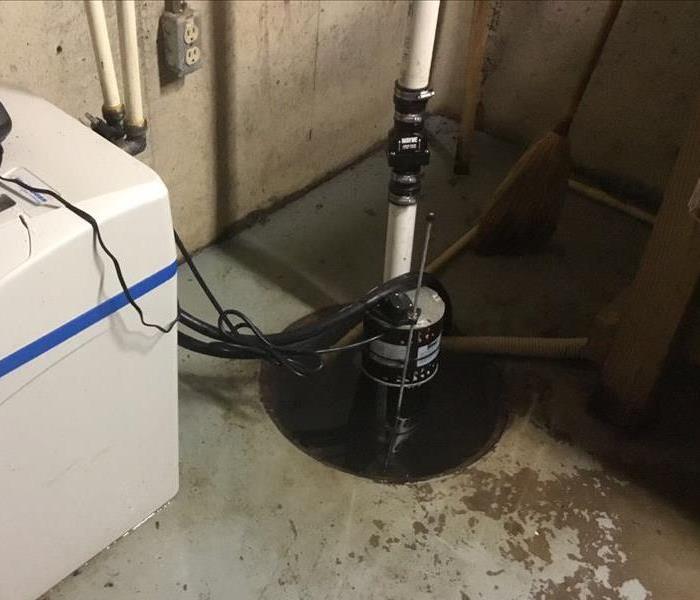Why use SERVPRO of Cass & St. Joseph Counties?
12/21/2018 (Permalink)
If you have a damp basement or live in an area prone to flooding, you know that dealing with water damage can be a homeowner’s worst nightmare. If your home has a wet basement, you’re not alone. The American Society of Home Inspectors estimates that more than 60 percent of homes have issues with water in the basement. A sump pump can be an effective option for preventing water damage.
Installed in a pit in the basement, these units sense when the water from rain or snow melt is rising in the pit and approaching the floor level. The incoming water is then pumped outside before it can damage the home or its furnishings. Sump pumps are relatively low-maintenance devices, but you can help keep your unit operational by inspecting it regularly. Steps in a regular maintenance program can include:
- Check the discharge line to make sure it is not stopped up or frozen. If necessary, unclog the air vent hole in the line.
- Check the inlet screen to ensure that it’s not clogged with any residue or debris.
- Making sure the float component is unobstructed and can move smoothly.
- Scan the pit and remove any visible debris, mud, or stones.
- Test the pump by slowly pouring a bucket of water into the pit. The float should rise with the water level, triggering the unit to start pumping. If pumping doesn’t begin, check to see that the unit is plugged in. Your float switch or check valve may also be at fault.
- Go outside to see that water is discharging and flowing where it’s supposed to go – well away from your home.





 24/7 Emergency Service
24/7 Emergency Service
